COVID-19 Policy Research

The effects of the coronavirus pandemic are being felt across the country: rising unemployment levels, overwhelmed health care systems, and businesses closing each day, some permanently. Policies for Action offers timely data and evidence on policies that are effective in responding to COVID-19. Explore our COVID-19 research here.
Research
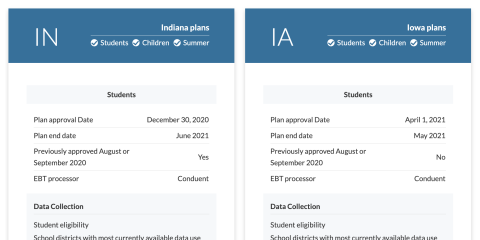
When schools across the country closed to in-person learning because of the coronavirus pandemic, millions of students lost access to free and reduced-price lunches. In response, states have begun providing emergency benefits through the federal Pandemic Electronic Benefit Transfer (P-EBT) program, which allows eligible school children to receive temporary emergency nutrition benefits through EBT cards that are used to purchase food. To help key decision-makers, researchers released a guide summarizing key components of approved plans and track implementation options and execution.
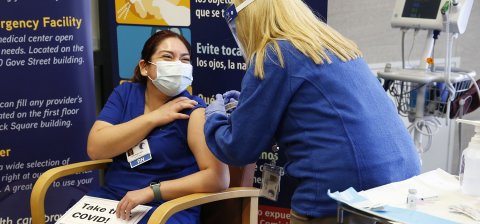
Joshua Aarons, Steven Brown, Lisa Dubay, and Genevieve M. Kenney
Fifty-seven million essential workers and workers in nonessential industries, many of whom must work in close proximity to others, will not receive the COVID-19 vaccine until production increases. Researchers at the Urban Institute detailed three steps communities and states can take to protect these workers and reduce the disparate burden of COVID-19 on Black, Native American, and Hispanic and Latinx workers.
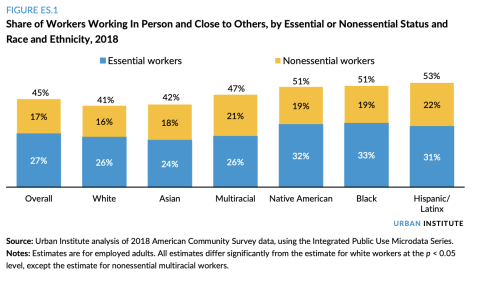
Lisa Dubay, Joshua Aarons, Steven Brown, and Genevieve M. Kenney
Throughout the pandemic, workers in both essential and nonessential industries have continued going to work and keeping the nation running, despite the risk of coronavirus exposure. But how does that risk translate across racial and ethnic lines? Researchers at the Urban Institute found that Black, Native American, and Hispanic/Latinx workers are more likely to have jobs that place them at greater risk of exposure to the coronavirus, and they offer clear suggestions for how to protect the health and well-being of these workers and their families.
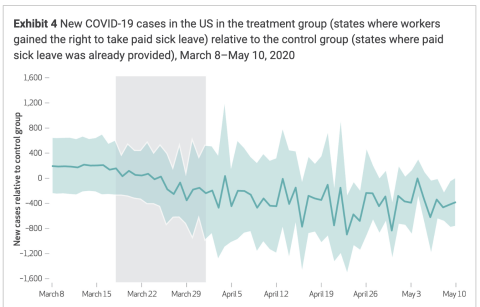
Stefan Pichler, Katherine Wen, and Nicolas R. Ziebarth
The Families First Coronavirus Response Act allows for two weeks of COVID-19-related emergency sick leave coverage at full pay. Policies for Action researchers found that the U.S. emergency sick leave provision was a highly effective policy tool in reducing the spread of COVID-19 and is supported by previous studies that show that sick employees who have access to paid leave are more likely to take a sick day.
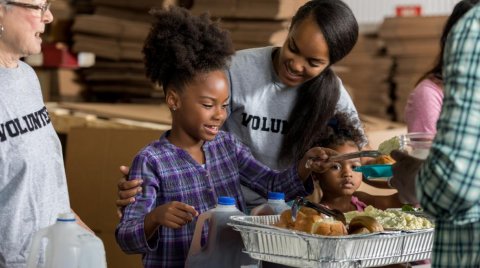
Jeff Hayes, C. Nicole Mason, Heidi Hartmann and Erin Weber
Researchers from the Institute for Women’s Policy Research found that the millions of jobs lost since March have led to sharp declines in household incomes and an increase in families struggling with food insufficiency, an impact felt most by Black and Latino single mother headed households. To support families, there is a need to expand food and nutrition assistance at the state and federal levels and funnel resources to community-based and local food programs.
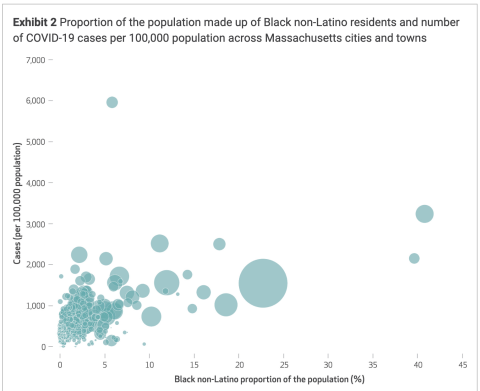
Jose F. Figueroa, Rishi K. Wadhera, Dennis Lee, Robert W. Yeh, and Benjamin D. Sommers
Massachusetts had one of the highest rates of COVID-19 cases in the early months of the pandemic, with a disparate effect on communities of color. Policies for Action researchers explore the factors associated with these disparities in the spread of coronavirus in cities and towns across Massachusetts.